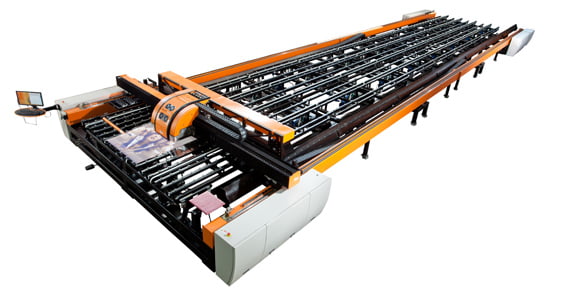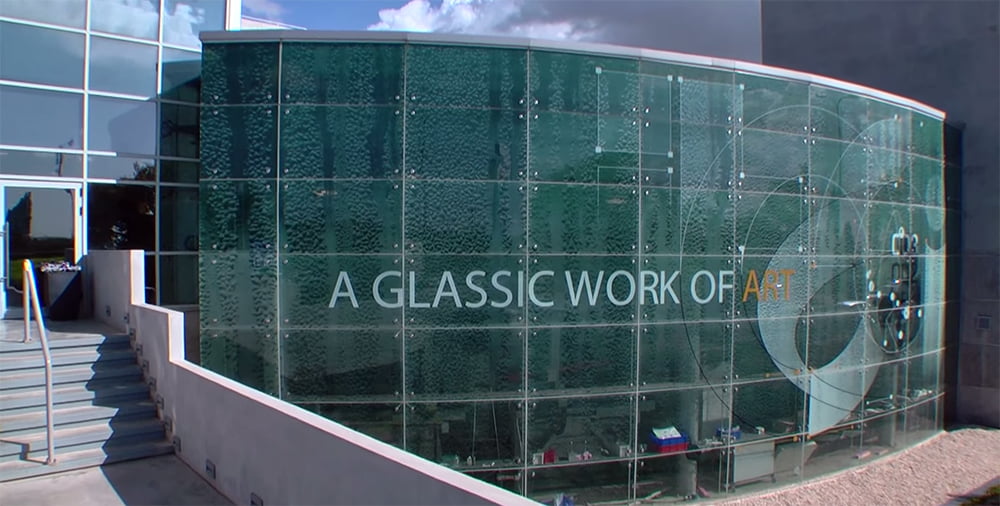This article was first published on The Times of Israel and was re-posted with permission.
The world’s authority on world records, Guinness, has awarded an Israeli company a record for the world’s largest digital printer. That winner — Kfar Sava-based Dip-Tech, which does digital printing on glass and ceramics, often in huge displays.
The Dip-Tech AR18000 printer can print a single pane of glass with a total area of up to 64 meters square (690 feet square). There are only two such printers in the world. Made in Israel, the Dip-Tech printers are owned and operated by sedak GmbH & Co. KG of Germany and Tianjin Northglass Industrial Co., Ltd in China. The Guinness World Records organization, which has been the acknowledged arbiter on the world’s biggest and best since 1955, presented Dip-Tech with the award last week.

Dip-Tech AR18000 digital ceramic in-glass printer
Dip-Tech has always been an aficionado of big printers. Using large-size printers is the only way to produce the artful designs and images the company has become known for. Dip-Tech’s methods have been used to design malls, hospitals, office buildings, and universities around the world – bringing a touch of the magic of printed glass, which looks similar to stained glass, to a new generation.
SEE ALSO: This Tiny Robot Is Actually A Printer You Carry In Your Pocket
Digital glass printing works the same as digital paper printing: An image is sent to the printer, which then gets transferred into the glass. The system is actually a bit more involved, because after the printing, the glass must be dried, and then tempered in a furnace.
Dip-Tech’s digital printing solution includes special inks the company has developed, said Tevet. The digital ceramic inks are made out of nano particles of glass and inorganic pigments, with the ink infused into the glass by the end of the process. After the tempering process, the ink becomes a part of the glass, meaning that it can stand up to any weather and environment conditions without fading. “Our printing solution allows the user to print a wide scale of colors, all in one pass. This is an exceptional capability when it comes to glass,” which usually requires much more intensive processing, said Shlomit Niva Tevet, Dip-Tech’s Director of Marketing.
To continue reading this article on the TOI site, click here.
Related posts

Editors’ & Readers’ Choice: 10 Favorite NoCamels Articles

Forward Facing: What Does The Future Hold For Israeli High-Tech?

Impact Innovation: Israeli Startups That Could Shape Our Future




Facebook comments